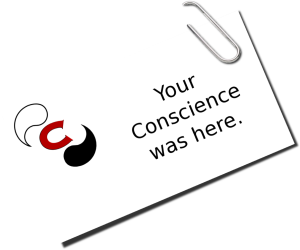Too many novice writers–and more than a few professionals–have a wrong idea about genres. This wrong idea can hinder a writer, keep him from finding inspiration in what they write. He thinks that his genre defines his writing, that his writing “has” a genre.
But your writing is not what “your genre” is. Genres are just marketing categories. They help readers find books that they might like to read. They help readers know what to expect from your stories. They provide conventions that help readers “get” your stories. But they do not define the story itself. A story does not have a genre. Rather, a genre has stories.
So if your writing is not your genre, what is it? Your writing is you. And you are the most important element in what you write. That’s where inspiration, creativity, and uniqueness come in. And letting the you in your writing shine through is also what will keep your readers coming back again and again for more and more. Because it separates you out, makes you unique. If you just write to a genre, your writing is just a commodity, with nothing to distinguish it from the thousands upon thousands of other writers who are writing in that same genre. But the you in your writing makes you one of a kind.
Now, I’ve always found it quite easy to find the you in what I write. Finding the right genre, not so much. So it has been with The Conscience of Abe’s Turn. For now, I don’t want to get into what specifically inspired this story (though that is the subject of one of the bonus extras, a retrospective essay in the upcoming first volume of the story). Suffice it to say that this story comes from dealing with issues that matter deeply to me, and from true stories that have horrified me and angered me.
I’m left with the converse problem, then, to what many writers face. There’s so much of the you in Abe’s Turn–that is, it’s so unique–it’s hard to find the genre it belongs in. I’ve been talking about Abe’s Turn as “romance,” or maybe “romantic suspense.” But that’s not quite right. Abe’s Turn is not a strict romance novel, because it doesn’t follow the romance formula. But it is about relationships, so it’s in the romance category, broadly speaking. But it’s not just about love, friendship, and betrayal. It’s about crime and sex and violence and spies and underground organizations.
The “crime and sex and violence” thing is what disturbed me about categorizing it as “romance-suspense.” How do I categorize Abe’s Turn so that romance readers don’t get the impression that it’s another Nora Roberts rip-off? Similarly, I don’t want to categorize it as “crime,” because it doesn’t follow the familiar conventions of that genre. How do I categorize it so that crime readers don’t think that the cops are supposed to be the good guys? Yes, they are sometimes the good guys in Abe’s Turn. But frequently enough, despite good intentions, they end up being the bad guys. That breaks with the traditional crime novel.
Bones to the Rescue
Looking at the subject list for a recent Kathy Reichs “Temperence Brennan” novel… [Why Kathy Reichs. Because her novels have strong characters and they involve violence.] Some relevant subjects and categories are:
- American Mystery & Suspense Fiction
- Fiction – Espionage / Thriller
- Fiction / Suspense
- Fiction / Thrillers
“Espionage” and “thriller” are the keywords that caught my attention. Why didn’t I think of that before? Abe’s Turn is “espionage romance.” Who ever heard of such a thing?
Well, a quick search on Amazon.com for “espionage romance fiction” pulls up quite a few hits. But Abe’s Turn is not just espionage-romance fiction. It’s also libertarian fiction. On Amazon, “libertarian romance fiction” and “libertarian espionage fiction” both pull up hits. But it seems the first volume of Abe’s Turn is to be the very first “libertarian espionage romance fiction” novel ever to make it into Amazon’s computer system.
What’d’ya know about that?
-TimK
